The Town is committed to pursuing grants and alternative funding opportunities to support a wide range of projects, acquire specialized equipment, and enhance training efforts. These resources allow the Town to extend beyond the limitations of its operational budget and address the evolving needs of a growing community. To promote transparency and provide clear, up-to-date information, this grant funding page is reset annually on July 1. We are grateful to the funding agencies that continue to recognize and invest in the future of the Town.
The Leland Tourism Development Authority grant program assists organizations with the marketing, promotion, and execution of projects and initiatives that promote tourism in – and attract visitors to – the Town of Leland.
As our Town grows, Leland Parks, Recreation, & Cultural Recourses is committed to growing and adapting our recreational amenities and programs to meet the expectations of our community. We look forward to increasing the number of performances and events so all ages can interact at the heart of the Town, while creating memories as families, neighbors, and friends.
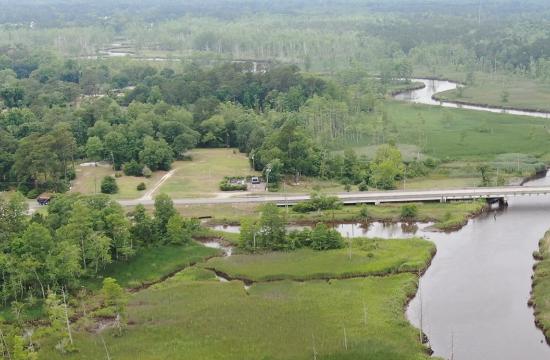
The Town of Leland has partnered with PARTF to building a boardwalk and boat dock along Sturgeon Creek. The currently undeveloped Sturgeon Creek Park is intended to serve as Leland’s second water access park. An ADA boardwalk and boat dock along a creek offer numerous benefits for the Town of Leland, including enhanced accessibility for pedestrians and boaters as well as improved recreational opportunities. With more than 78 acres, this park has the potential to become a destination facility both locally and regionally for sportsmen and water lovers wishing to gain access to Sturgeon Creek and the Brunswick River.
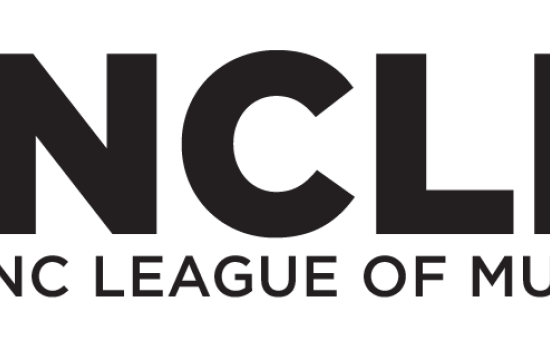
The Workers' Compensation Trust is member-owned and governed self-insurance risk pool of cities, towns and public entities that collectively achieve greater rate stability. The League’s expert risk management, claims management, and underwriting staff work for the benefit of all pool members, which means lower costs for local government over the long term. The Safety Grant program has allocated funds for each pool to assist members in purchasing equipment and services that will significantly reduce the likelihood of future workers' compensation, property/casualty, or liability insurance claims.
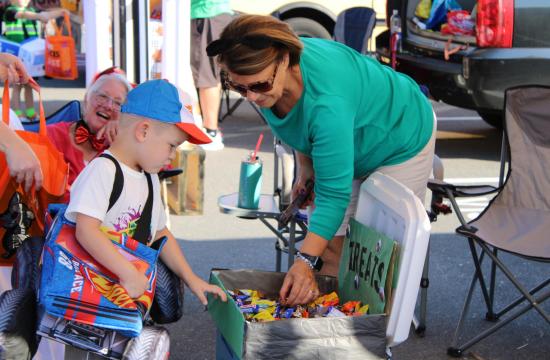
Through its New Initiative Grant, the North Carolina Recreation and Park Association (NCPRA) stimulates creative and impactful projects in local North Carolina communities. By awarding seed funding, this program helps advance the association's core mission of promoting equitable access to outdoor spaces, fostering health and wellness through engaging activities, and supporting local conservation efforts. The initiative ultimately enhances community well-being by providing new resources and opportunities for residents.
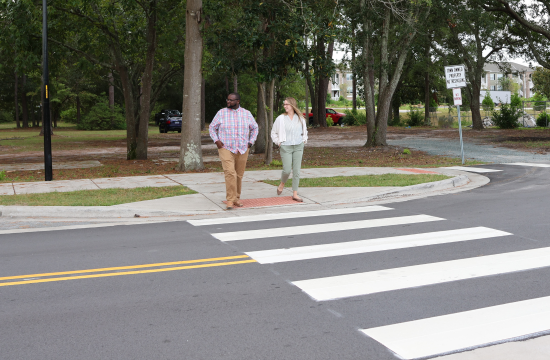
The AARP Community Challenge grant program is part of the nationwide AARP Livable Communities initiative that helps communities make immediate improvements and jump-start long-term progress in support of residents of all ages.
Through this program, the Town of Leland is seeking funding to install Rectangular Rapid Flashing Beacons (RRFBs) at two key crosswalks. These pedestrian safety signals will provide improvement in accessibility and visibility, helping to protect all who walk or cycle in the community, particularly residents aged 50 and older. By installing four RRFBs, the Town will create safer, more connected routes that encourage mobility, independence, and peace of mind for residents and visitors alike.
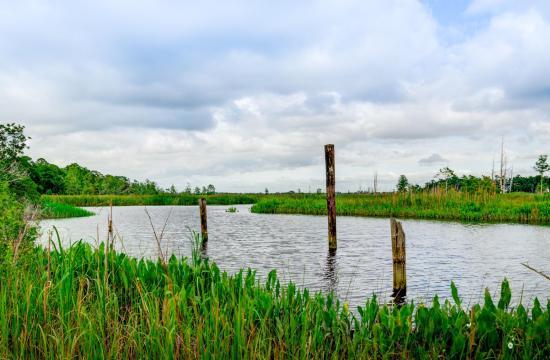
The Streamflow Rehabilitation Assistance Program (StRAP) provides grants to projects that help reduce flooding and restore streams across North Carolina. The program was created by the NC General Assembly, which approved $38 million in funding for StRAP in the budget appropriations bill for the 2021-2022 fiscal year. StRAP allocates money for projects that protect and restore the integrity of drainage infrastructure of North Carolina’s waterways.
The funding received from this program will assist tin the vegetative debris for Jackeys Creek from Highway 17 to Lanvale Road.
